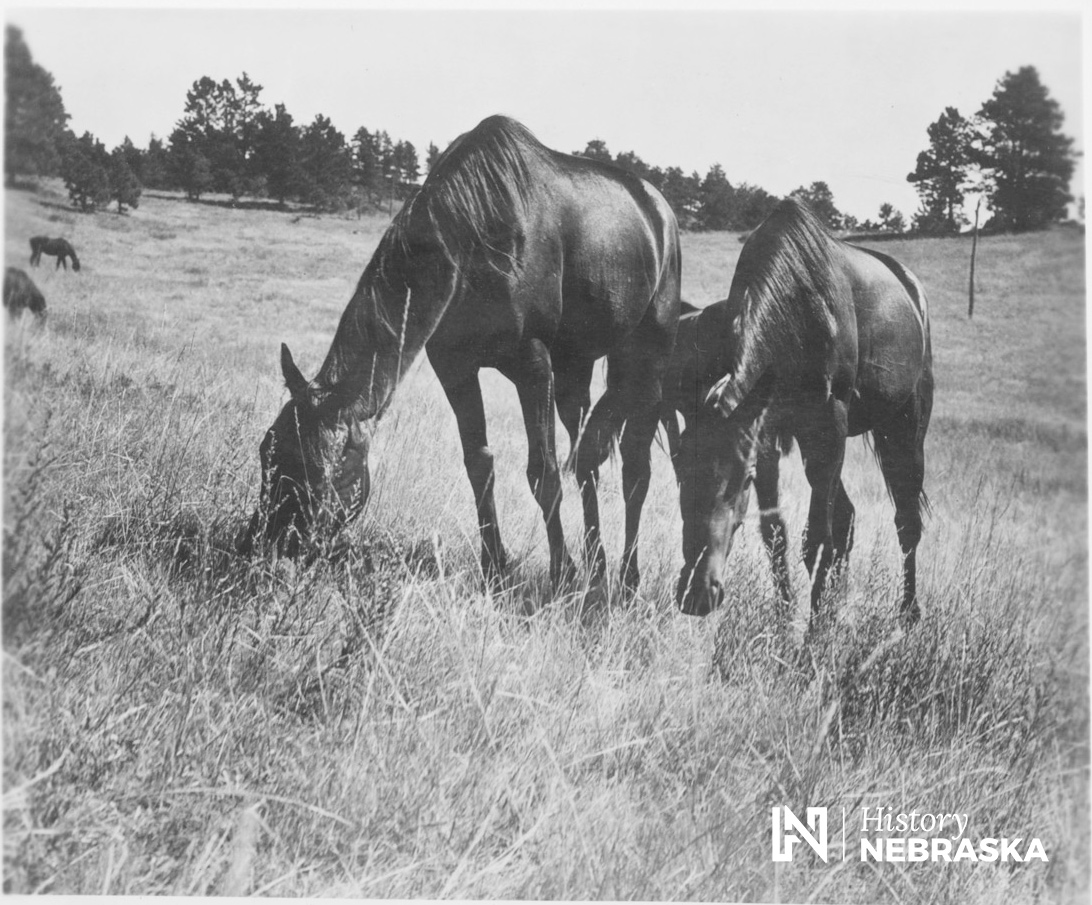Dr. Enos Lowe was one of Omaha’s pioneer settlers and its first mayor. He also owned a pair of horses, George and Jim, that were inseparable for 20 years. He wrote about them in the Omaha Daily Herald after George died.

Horses enjoying the pasture near Fort Robinson (RG1517.PH000045-000093)
Dr. Enos Lowe (1804-80) was one of Omaha’s pioneer settlers, who helped lay out the city in 1853 and served as its first mayor. Historian A. T. Andreas said of Lowe: “The Doctor devoted all of his time and energies to the promotion of the general interest of Omaha . . . , continuing an active worker in the community as long as his health and strength permitted.” The hard-working doctor had a whimsical side, however. A letter from Lowe to the editor of the Omaha Daily Herald, published on July 27, 1875, eulogized one of Lowe’s team of horses, recently “Gone to Horse Heaven,” and revealed plans to bury the second horse beside the first.
In 1855 I purchased of Gid Robertson a matched team of grey horses which Judge James brought from Dixon, Illinois. The horses were then six or seven years old, their tails nicked skillfully, and nicely set up (a practice which should be prohibited by law, if ever revived) and they were dappled then, and as much alike as two black-eyed peas out of the same pod. At the first and second Douglas county fair they took the premium for the best span, and there are yet a few early settlers who will recollect the perfect and unequalled style and appearance of George and Jim as an attractive street ornament during the first fifteen years of Omaha. They were as kind and affectionate to each other as the best of brothers, and if separated for a moment manifested deep distress. For a quarter of [a] century they had traveled, ate, and slept side by side.
But less than two years ago, Jim’s left fore ankle was wrenched severely, producing great suffering and swelling, and for months it was almost impossible for him to get up. But instead of subjecting him to the usual in such cases, of penetrating the brain with a bullet, was treated in the kindest, but less economical manner, and thus his life was prolonged until Saturday afternoon, July 24th, 1875, when at the age of 27 years he breathed his last, and now rests, decently buried, and will be affectionately remembered by those he served so well, in connection with the idea of pastures ever green, awaiting the coming of his companion and mate as indispensable to his perfect happiness in the better land.
In the burial it was arranged for George to take his old place again on the near side of his mate, by and by. Notwithstanding his great age, 27 or 28, George has never learned to speak the English language, but if you could see him as I have seen him since his bereavement, rapidly moving his ears, looking with evident anxiety across into the pasture where he was taken away from his dying companion, and hear his calls of distress, I think you would agree with me that horse talk can easily be understood. I never shall own their like again.



